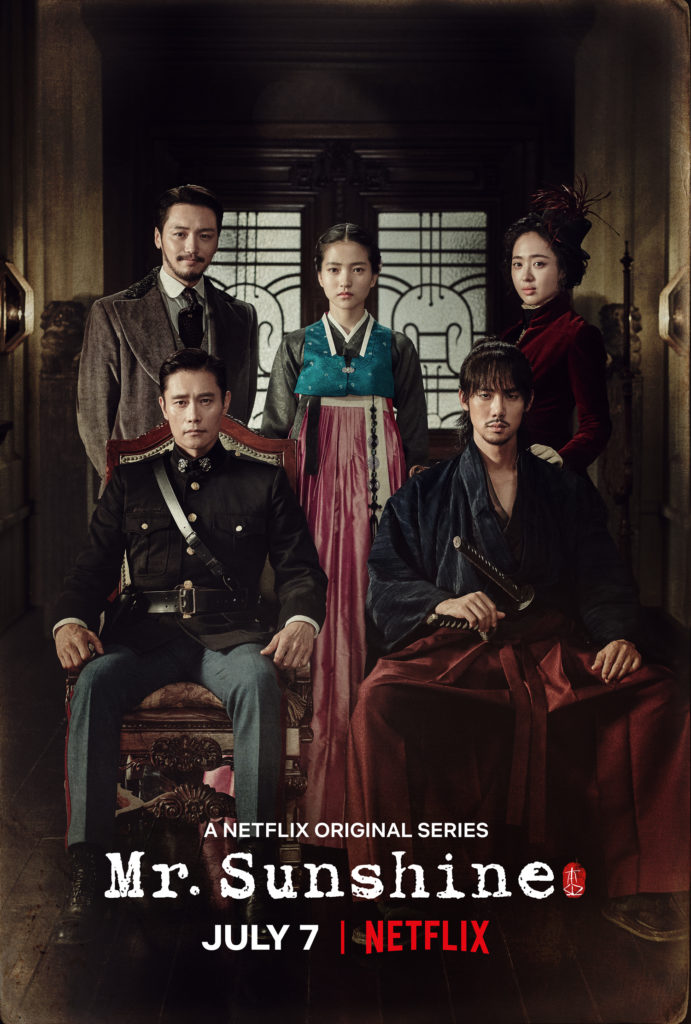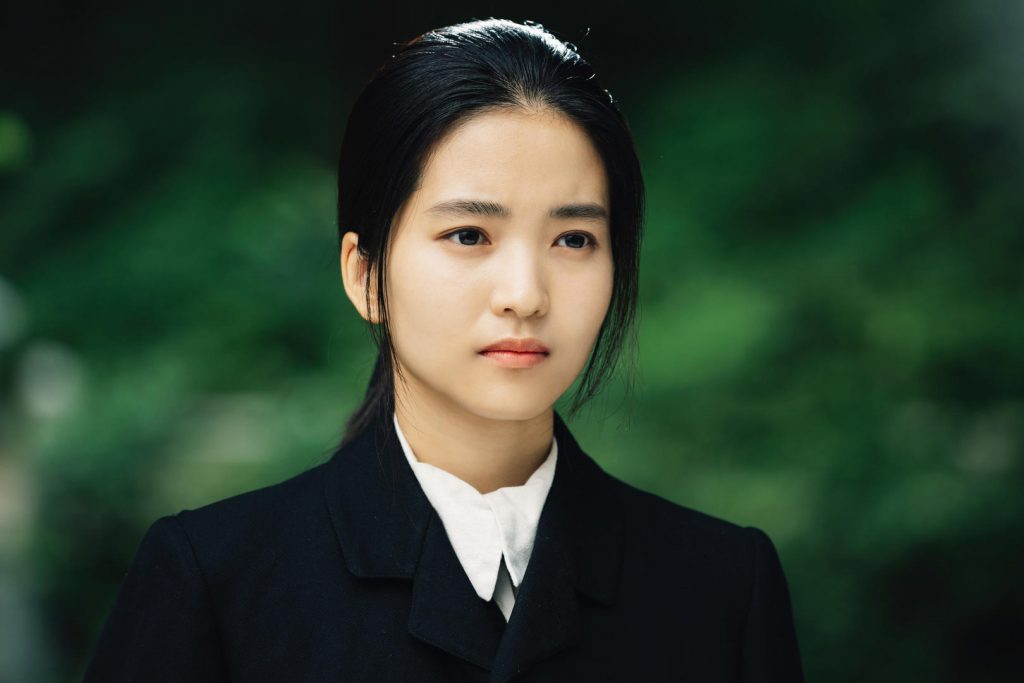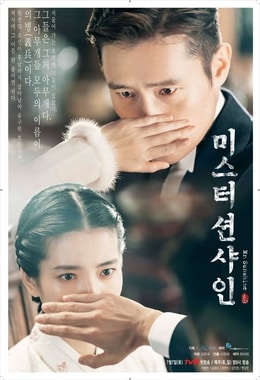“Mr. Sunshine” (2018): Jane Austen meets Downton Abbey

Viewers are treated, in this 24-episode series, Mr. Sunshine, to a glimpse of Korean history that few outside of Korea will be familiar with . Screenwriting legend, Kim Eun Sook, has created an intricate historical romance set in 1871, when a US military ship docked in Korea, wishes to expand into Asia for the exploitation of natural resources and land. We first are introduced to Mr. Sunshine , Eugene Choi (Lee Byung-hun), as a nine-year old Korean boy born into a family of slaves. In a dramatic turn of events, the little boy runs away with an American missionary to New York City. Thirty years later, as a U.S. military officer, Choi is sent to Joseon (Korea) and unexpectedly falls in love with a beautiful aristocrat’s daughter, Go Ae-sin (Kim Tae-ri), a member of the class which enabled the slavery of his parents.
Jumping ahead thirty-four years to 1904, Japan breaks off relations with Russia, President Teddy Roosevelt says publicly that he would “maintain the strictest neutrality” between Russia and Japan but privately he writes: “The sympathies of the United States are entirely on Japan’s side.”

In this complex political backdrop, Roosevelt cuts off relations with Korea, setting up a US “legation” and approving the annexation of Korea to Japan. This is the stage for Mr. Sunshine.
U.S. army captain, Eugene Choi , is seen at the White House meeting with President Theodore Roosevelt. His main mission as deputy consul is to maneuver among the four colonial powers –the US, Russia, China and Japan–looking to exploit the newly independent Korea. Slavery is slowly being abolished, a small middle-class is emerging, and Western customs are finding their way into a proud nation.
Mr. Sunshine has a complicated roster of characters,– both villains and protagonists—who, at times, fuse into bromance and arch-rivals for the love of the exquisite Ae-sin . This series has a delightful comic tone between the three major male characters simulating peacocks in posturing before Ae-sin. Yet there is a slapstick vibe to other comic scenes which are ill-fitted, at least for a foreign audience. Maintaining a Jane Austen-type romantic tension over twenty-four hour-long episodes requires a meticulous attention to plot and dialogue, something the screenwriter does in surprisingly inventive plot-points.
Few of these actors will ever become household names in our Hollywood film industry, but their talents are as good as any iconic Hollywood performer. Lee Byung-hun as Eugene Choi delivers a riveting performance full of subtle conflict (for example, between the land of his birth and the country he calls home) and emotions that are revealed on his face. It’s difficult for this viewer to take her eyes off him. The quiet nature of his character makes those rare intense outbursts of rage and grief even more effective.

Mr. Sunshine will appeal to selected audiences for its visually stunning and melodramatic episodes as well as its unique portrayal of a lesser-known historical period for most American viewers. Others may relegate Mr. Sunshine to the level of soap opera in costume but to do so would be to miss out on a romance with historical underpinnings.
Note: Available to stream on Netflix.

Lenore Gay
Once again, not a Netflix subscriber. I did enjoy PBS’s Sanditon. Another J. Austin I never read. Very well done -all, the cast and surroundings were tops.